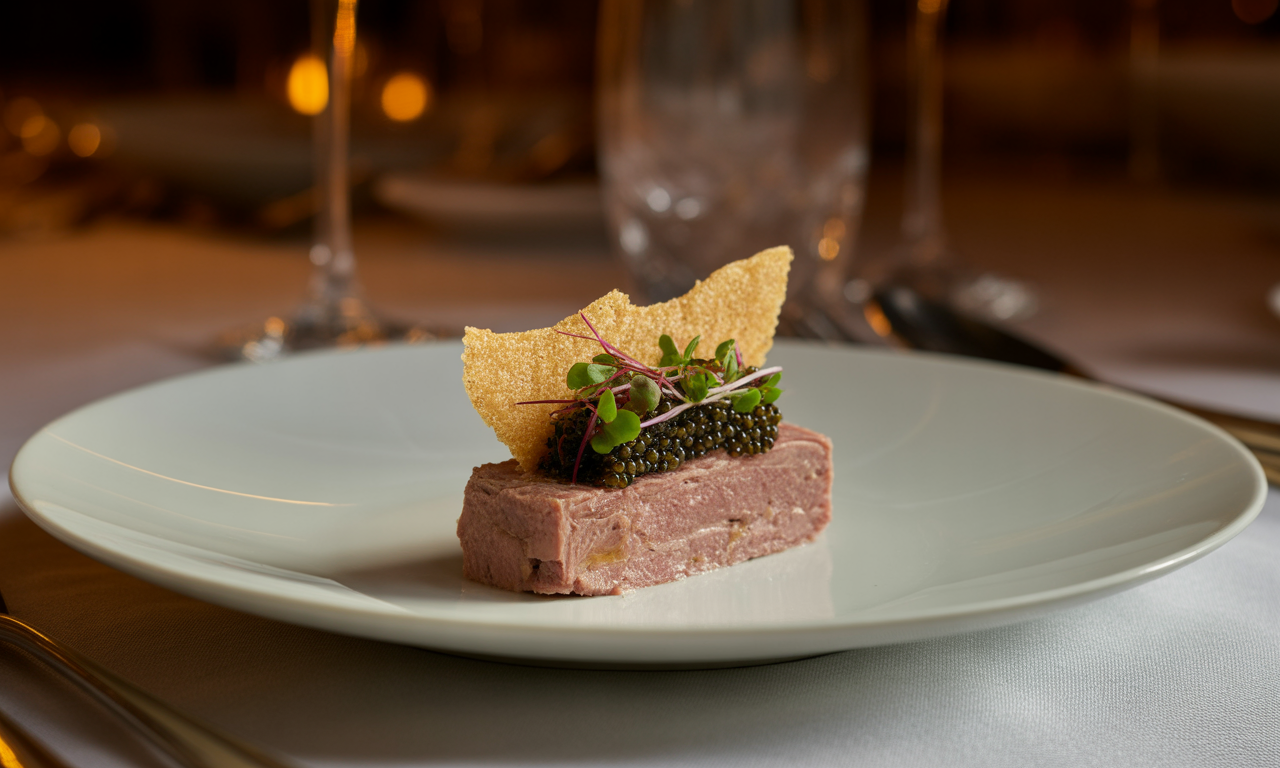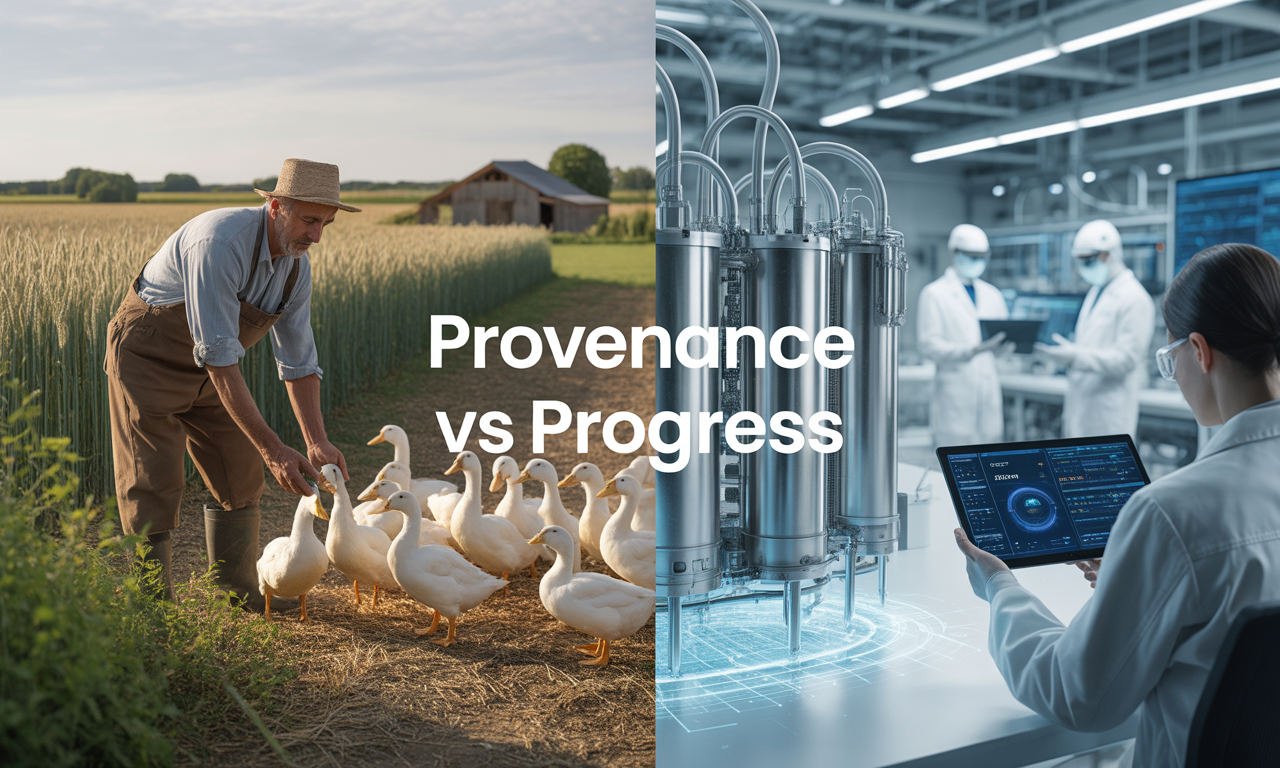The Lab-Produced Duck Dilemma: Science, Soul, and the Future of Fine Dining
Lab-grown duck is entering fine dining. Will diners pay premium prices for proteins from a lab? Explore the future of luxury dining here.
More than flavour — the real question is whether a dish like this can carry the same story and soul as traditionally farmed duck.
Would you pay $60 for a lab-grown duck breast?
That question no longer belongs to science fiction. Cultivated meat — produced from animal cells in controlled lab environments — is moving from research labs into fine dining test kitchens. Duck, in particular, is emerging as one of the first luxury proteins.
On paper, this technology promises sustainability, animal welfare, and consistency. In reality, it raises deeper questions: about flavour, about story, and about the very soul of dining.
What Is Lab-Grown Meat, Really?
Lab-grown meat (often called cultivated or cell-based meat) is produced by harvesting animal cells and growing them in nutrient-rich cultures until they form muscle tissue. The result? Meat that’s biologically identical to conventional cuts — but without raising or slaughtering animals.
The promises:
Lower environmental footprint (fewer greenhouse gases, less land and water).
Ethical alternative to industrial farming.
Consistency in supply and quality.
The current challenges:
High production costs (a single cultivated duck breast could still cost hundreds in the lab, though prices are falling).
Regulatory approval (Singapore and the U.S. have moved ahead; Europe and Australia are still in debate).
Consumer acceptance — perhaps the biggest unknown.
Fine Dining Meets Future Tech
Luxury restaurants have always been early adopters of innovation. From molecular gastronomy to hydrocolloids, many techniques we now consider “normal” began as experiments in elite kitchens.
Cultivated proteins are no different. It’s likely that:
Tasting menus will be the first frontier — allowing chefs to frame lab-grown duck as an experience, not a replacement.
Eco-resorts and high-end wellness retreats may adopt it to reinforce sustainability credentials.
Tech-forward cities like Singapore, San Francisco, and Dubai could become the first real markets.
But the question remains: will diners embrace it?
The Romance of Provenance
Luxury dining has never been about calories on a plate. It’s about story.
A fisherman’s dawn. A farmer’s soil. A vineyard’s slope. These narratives give food its emotional weight.
Chefs know this instinctively: guests aren’t just buying flavour, they’re buying identity. That’s why menus proudly name farms, fishermen, and villages.
So the challenge with lab-grown proteins isn’t just flavour and texture. It’s romance. Can a bioreactor replace the poetry of terroir?
Fine dining thrives on provenance, but can progress rewrite the narrative?
The Chef’s Dilemma
For chefs, the debate is not simply “can I cook it?” The question is deeper:
Does it fit the identity of my restaurant?
Will my guests feel the same emotional connection?
Am I serving science, or am I serving soul?
Some chefs see opportunity: a chance to showcase innovation, sustainability, and exclusivity. Others feel hesitation: a fear of losing the heart of hospitality.
As a chef, my instinct is clear — food is not just about molecules, it’s about meaning.
Where We’re Headed
Lab-grown duck is coming. Not next decade, but within the next few years. Here’s what I believe will happen:
Short-term (1–3 years): Cultivated duck and chicken will appear on experimental menus, often in tiny portions, framed as conversation pieces.
Medium-term (3–7 years): Costs will drop, and eco-driven hotels and resorts will feature it as a sustainability highlight.
Long-term (7+ years): Acceptance will depend on whether cultivated proteins can create their own romance — a story guests want to buy into.
Science vs Soul
Sometimes progress is about science. Sometimes it’s about soul.
The lab-produced duck dilemma sits exactly at that intersection. It forces us to ask what dining is really about. Is it flavour? Story? Ethics? Or all of them together?
As chefs, owners, and diners, we’ll soon have to decide.
Fine dining has always been about more than ingredients. The real question is whether science can carry the same soul as tradition.
Conclusion
If you’re in hospitality, this isn’t a “maybe later” conversation. It’s arriving now. The question is whether your concept will embrace it, resist it, or reinterpret it in your own way.
👉 I’ve written more on concept design, menu strategy, and the future of dining in my Articles archive



